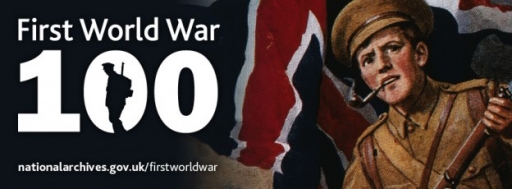The National Archives at Kew has launched a new programme to mark the Centenary of the First World War.
First World War 100 aims to “engage new audiences with our collections as well as offering historians and regular archive users fresh insights into this landmark conflict”.
The programme consists of a mixture of online resources and access to physical records.
The National Archives announced that it will be “exploring major anniversaries and key aspects of the war through our themes of diplomacy; technology; home front; air and sea; peace; bravery and courage; medicine and health and global perspectives”.
Through the programme, it aims to invite “diverse groups and audiences” to use its primary sources to allow them “engage in some of the key debates and issues around the war”.
Online collections
In wider preparations for the Centenary, The National Archives has already made available online millions of British armed forces records and government papers.
During the Centenary years, The National Archives will carry out several “major” digitisation projects in order to make records relating to the First World War available online to a global audience.
The first and largest of the digitisation projects is the unit war diaries.
This collection chronicles the day by day operations of regiments. Previously only available on site in Kew, these records are described as “a rich source for the genealogist and the historian alike”.
1.5 million diary pages relating to France and Flanders have already been digitised in the largest single digitisation project undertaken by The National Archives.
Other records, including medal cards, service records and prisoner of war interviews, will also be made available.
Improving collection searches
The National Archives plans to improve the ways in which users can research its records. This includes better catalogue descriptions of key record series, including
Merchant Navy crew lists and officers’ service records, to improve searching and browsing in the catalogue Discovery.
The National Archives also plans to further its research guidance with new resources and tools aimed at helping both first-time and experienced users.
The My Tommy’s War blog series – which takes a personal approach to providing practical advice to family historians researching their First World War ancestors – will continue throughout the programme, along with a full range of other blogs, podcasts and video content.
Educational video conference
A video conference learning resource – All Pals Together – has been created for schools.
Aimed at schools, which will be able to book hour-long sessions, students will “meet” a soldier from a Pals Battalion, Private Henry Fairhurst, played by a costumed actor, as he answers questions and talks about why he joined the Army and his experience of the trenches.
To visit the First World War 100 portal, click here.
Source: The National Archives press release
Images courtesy of The National Archives
Posted by: Daniel Barry, Centenary News
